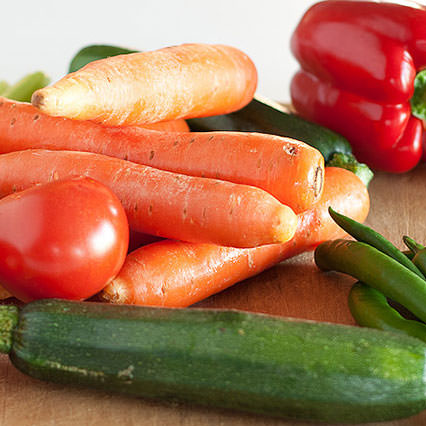
The Low-FODMAP Diet for Crohn’s Disease
There is some evidence that a low FODMAP diet helps treat irritable bowel syndrome, and it is becoming an established treatment method.
When considering a diet that involves avoiding a long list of foods, it is beneficial to look at foods that are acceptable on the diet. Below are low-FODMAP foods typically tolerated categorized by food group.
Low-FODMAP diet suggested foods
- Vegetables: bamboo shoots, bell peppers, bok choy, cucumbers, carrots, corn, eggplant (aubergine), lettuce, leafy greens, pumpkin, potatoes, squash (butternut, winter), yams, tomatoes, zucchini (courgette)
- Fruits: bananas, berries, cantaloupe, grapes, grapefruit, honeydew, kiwifruit, kumquat, lemon, lime, mandarin, orange, passion fruit, pineapple, rhubarb, tangerine
- Protein: beef, chicken, canned tuna, eggs, egg whites, fish, lamb, pork, shellfish, turkey, cold cuts (all prepared without added FODMAP containing foods), nuts, nut butters, seeds
- Dairy and non-dairy alternatives: lactose-free dairy, small amounts of: cream cheese, half and half, hard cheeses (cheddar, colby, parmesan, swiss), mozzarella, sherbet, almond milk, rice milk, rice milk ice cream
- Grains: wheat-free grains/wheat-free flours (including gluten-free grains, which are free of wheat, barley and rye) and products made with these (e.g. bagels, breads, crackers, noodles, pancakes, pastas, pretzels, waffles); corn flakes, cream of rice, grits, oats, quinoa, rice, tapioca, corn tortillas.
- Beverage options: water, coffee and tea, low FODMAP fruit/vegetable juices (limit to ½ cup at a time)
Personally I have stomach trouble after eating many of the grains and beverages listed here, so I find a combination of Paleo diet plus Low-FODMAP seems to work best for me. Experiment for 30 days and see how you feel. Everyone’s experiences vary slightly.
IBS is a debilitating condition and the pathophysiology of IBS is not completely understood. Seemingly everyone has slightly different experiences and luck with diet.
The effects of fermentable carbohydrates on gastrointestinal symptoms have also been well described in blinded, controlled trials. Dietary restriction of fermentable carbohydrates (popularly termed the ‘low FODMAP diet’) has received considerable attention. An emerging body of research now demonstrates the efficacy of fermentable carbohydrate restriction in IBS; however, limitations still exist with this approach owing to a limited number of randomized trials, in part due to the fundamental difficulty of placebo control in dietary trials. Evidence also indicates that the diet can influence the gut microbiota and nutrient intake. Fermentable carbohydrate restriction in people with IBS is promising, but the effects on gastrointestinal health require further investigation.
This summary from recent research in 2014 strongly suggests the food-diet-IBS connection. I recommend at least giving diet a try if you haven’t really cut out foods and given yourself a food reset. Go 100% strict for 3-4 weeks and see how you feel. It’s hardest the first day, after that it gets easier as you feel better.

 on Pinterest
on Pinterest on Twitter
on Twitter